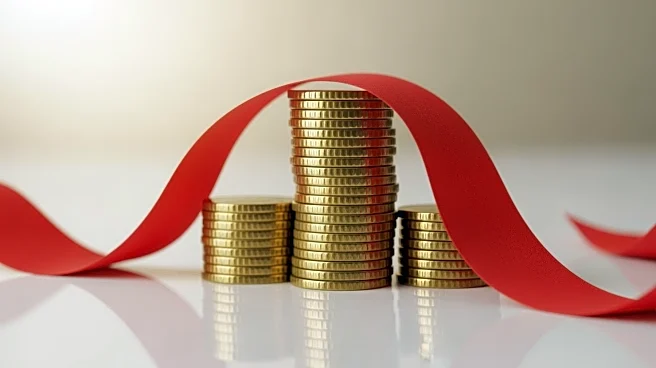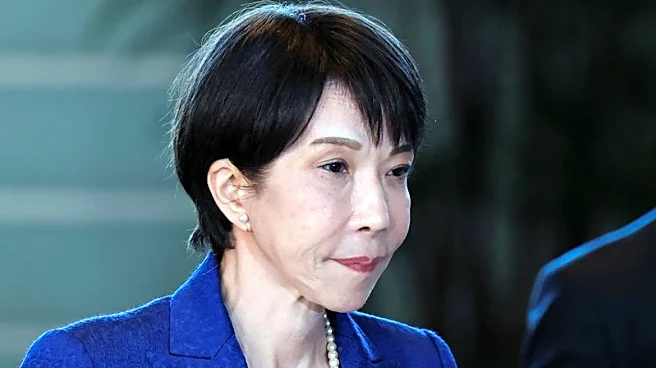What's Happening?
President Trump has proposed issuing $2,000 rebate checks to most Americans, excluding high-income individuals, as a dividend from the tariffs imposed since he took office. In a social media post, he claimed that these tariffs have generated trillions
of dollars for the U.S., contributing to the country's wealth and low inflation. The proposal comes in the wake of the Supreme Court's review of his authority to impose such tariffs. Despite the tariffs, inflation remains above the Federal Reserve's target, partly due to companies passing on increased costs to consumers.
Why It's Important?
The proposal for tariff rebate checks could have significant implications for the U.S. economy and its citizens. If implemented, it could provide financial relief to many Americans, potentially boosting consumer spending. However, the ongoing debate over the effectiveness of tariffs as an economic tool continues, with critics arguing that they lead to higher consumer prices and strained international trade relations. The Supreme Court's decision on the legality of these tariffs could further impact their future use and the economic strategies of the current administration.
What's Next?
The Supreme Court's ruling on the president's tariff authority will be crucial in determining the future of these economic measures. Additionally, the proposal for rebate checks may face scrutiny from lawmakers and economists, who will evaluate its potential impact on the national debt and economic stability. Stakeholders, including businesses and consumers, will be closely monitoring these developments.
















